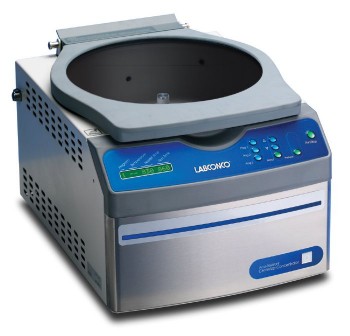5 questions to ask when selecting a concentrator
 We often are asked many questions regarding Labconco CentriVap® Concentrators. Here are the answers to some of the most common questions.
We often are asked many questions regarding Labconco CentriVap® Concentrators. Here are the answers to some of the most common questions.
If your question is not answered, do not hesitate to contact us as we are happy to help. Expert advice is only a phone call, email or chat away.
1. Why are concentrators used for evaporating biological samples?
The most common way to evaporate something is to apply heat and boil off the liquid. Biological samples are heat sensitive thus the heat that drives the evaporation process must be limited. In a vacuum atmosphere pressure levels are lowered and liquids boil or evaporate at lower temperatures.
A vacuum atmosphere in the concentrator lowers the pressure level so that evaporation will occur at low temperatures and the samples will not be damaged from heat.
2. How are concentrators different than centrifuges?
Both concentrators and centrifuges spin samples that are commonly in tubes or microplates. Centrifuges spin samples at variable rates creating G forces that separate samples according to density. Concentrators spin samples at a fixed, low-speed that creates just enough force to keep the liquid samples in tubes or microplates so a vacuum can be applied to liquids without losing any samples. Concentrators require a vacuum pump and centrifuges do not operate under vacuum.
3. Does every Labconco CentriVap® Concentrator need a vacuum pump?
A vacuum pump is required to centrifugally concentrate, however the CentriVap Micro IR, CentriVap DNA and CentriVap Complete models include a built-in chemical-resistant diaphragm vacuum pump and a rotor. All other CentriVaps require the purchase of a chemical- resistant diaphragm vacuum pump.
4. When do you use a cold trap with a concentrator?
Most samples do not require a Cold Trap in order to evaporate.
- Cold traps are needed to create a closed system, meaning all of the solvents that are being evaporated are collected in the cold trap. This is helpful if the lab does not have a fume hood to safely exhaust the evaporated solvents.
- If a rotary vane (oil) vacuum pump is being used with the concentrator, a cold trap is required to protect the vacuum pump by collecting the liquids and vapors before they reach the vacuum pump.
- If the lab would like to lyophilize in addition to concentration then a cold trap is needed as well as a vacuum pump that can produce a sufficient, deep vacuum.
- If a cold trap is not being used when concentrating large volumes a glass trap should be inline before the vacuum pump to collect any liquids that are condensing in the vacuum tubing before they reach the vacuum pump.
5. Is there an easy way to determine which Labconco CentriVap® Concentrator is best for my applications?
Labconco offers an extensive selection of centrifugal concentrators with each model designed for specific applications. To ensure you are getting the best CentriVap for your needs, simply use the Scout™ Lab Equipment Selector on the Labconco website.
| chevron_left | Infographic: SEFA 9-2010 Ductless Enclosure Classifications | Articles | 4 questions to answer when selecting an evaporator | chevron_right |






